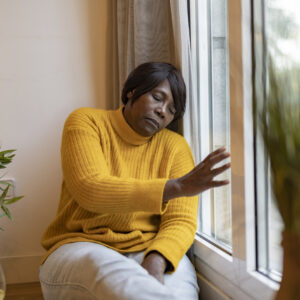Sick And Tired: The Connection Between Aging And Fatigue

Sick And Tired: The Connection Between Aging And Fatigue
April 12, 2023
There are days when you just feel tired and not up to your usual daily activities. Maybe you over-exerted yourself the day before. Maybe you had a restless night and didn’t sleep well. Maybe you didn’t eat or drink enough the previous day and your body is now feeling the effects. We all have these sorts of days but usually, with a little self-TLC, we’re back up and out soon after. But then there is the feeling of being absolutely drained, exhausted, and unable to even rouse yourself- as though any minor movement is a herculean effort and just getting yourself out of bed may be your major accomplishment of the day. Those are the days when we need to think about fatigue and whether it’s a symptom of something more serious. According to a recent article by Judith Graham in Kaiser Health News, fatigue is one of the most common symptoms when you have a chronic illness (think heart disease, kidney disease, cancer, or some other chronic affliction) and Graham writes that 40-74% of older adults with such chronic conditions experience fatigue. It’s not a normal part of aging but it’s definitely a common symptom of the sorts of illnesses that often plague your later years. AARP reports that as many as 50% of adults 65 and older experience fatigue (while only 10-25% of the general adult population does).
Depending on how long you’ve experienced fatigue, the cause could be a number of factors: Everything from sleep deprivation, poor nutrition, medication side effects, or stress to more serious concerns such as cancer, diabetes, or depression. There is even something known as Chronic Fatigue Syndrome, which often has an unknown etiology. Many patients with long Covid have also experienced chronic fatigue. Not only can fatigue leave you exhausted and listless, but it can also affect your focus, state of mind, and quality of life. There is some recent research suggesting that social isolation and long-term loneliness can lead to the kind of energy drain and exhaustion that characterizes fatigue, though the precise link between these factors is uncertain. And as Judith Graham points out, having fatigue can lead to a vicious cycle: Experiencing fatigue can leave you depressed, which is one more factor that can exacerbate your fatigue.
So what’s an older adult to do when she starts experiencing fatigue for weeks or even longer? The consensus is that older adults with fatigue lasting longer than a week or two need to be evaluated by their physician to determine if something more serious is going on. And if your fatigue is accompanied by new or different headaches or vision loss, or some other serious symptom, you should seek out medical help asap. There is research data showing that physical fatigue in an older adult may be an indicator that death may occur less than three years into the future. As one expert told Judith Graham, “Fatigue is an alarm signal that something is wrong with the body but it’s rarely one thing. Usually, several things need to be addressed.”
A workup following a feeling of fatigue can include a wide range of testing and evaluation, given the range of reasons that could be causing the symptom. It might include everything from a physical exam to a neurological exam, to blood work and viral testing. Bottom Line? Fatigue is not just a feeling of being drained and exhausted but a likely indication that something else may be seriously wrong with you. That’s why fatigue, especially if it comes on suddenly, is important to have evaluated as soon as possible.







